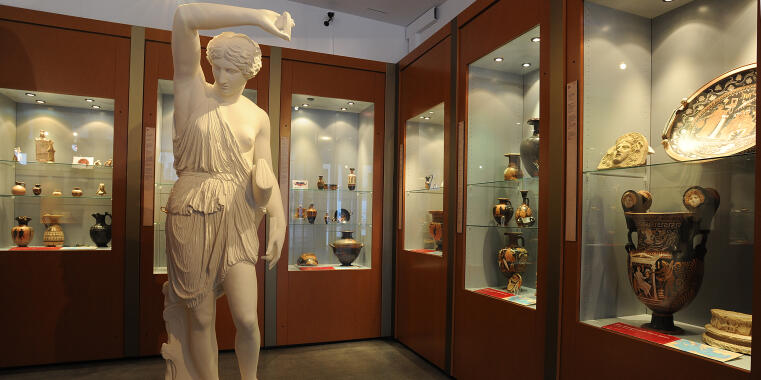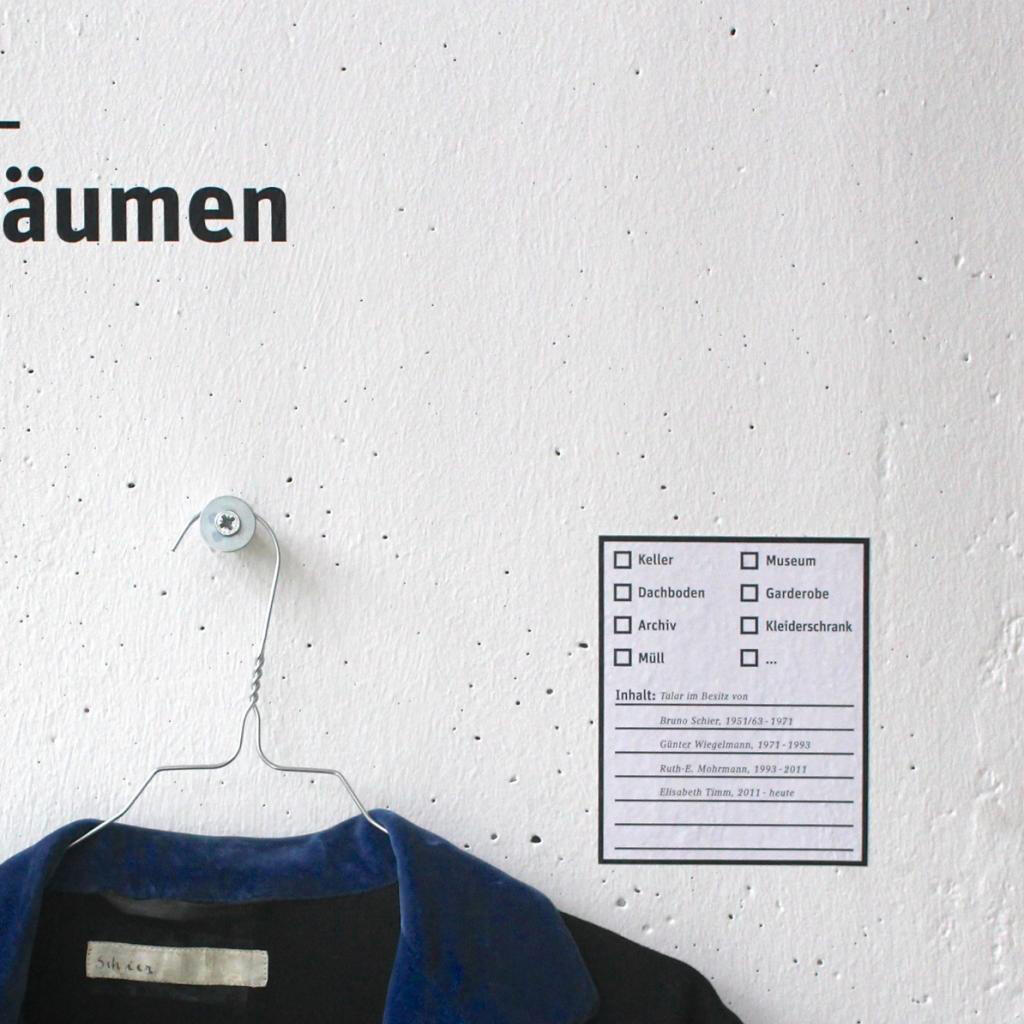



When and where will I get to see you again?
Online exhibition of the project ‘Julius Otto Grimm in Münster’


Roman Colonies
An online numismatic exhibition by students


ten footnotes: How folk culture came to the university
Permanent exhibition at the Institute of Cultural Anthropology/European Ethnology
Finished exhibitions
- „Aus der Ferne in meine Ukraine“ – Letters from the forced labourer Hanna Pastuch from Gelsenkirchen, 1942–1943 (Exhibition in the foyer of the Philosophikum from 21 November to 5 December 2024)
- Body. Cult. Religion. Perspectives from Antiquity to the Present (25 October 2024 to 26 February 2025 at the Archaeological Museum and the Bible Museum)
- A matter of faith. Anna Katharina Emmerick and her devotion (Special exhibition at the Coesfeld City Museum from 31 August 2024 to 9 February 2025)
- Ukrainian Sites of Memory from a Historical and Art Historical Perspective (Poster exhibition in the Philosophikum from 16 to 26 June and in the Fürstenberghaus from 27 June to 7 July 2023; curated by Prof. Dr. Ricarda Vulpius and Prof. Dr. Jens Niebaum with students)
- Barbarossa - The Art of Rulership (special exhibition at the LWL Museum of Art and Culture from 28 October 2022 to 5 February 2023, co-curated by Prof. Dr. Jan Keupp)
- The Horse in Antiquity – From Troy to Olympia (23 October 2022 to 12 February 2023 at the Winckelmann Museum Stendal)



